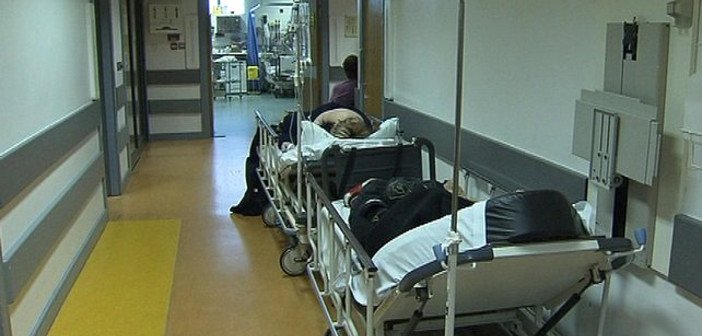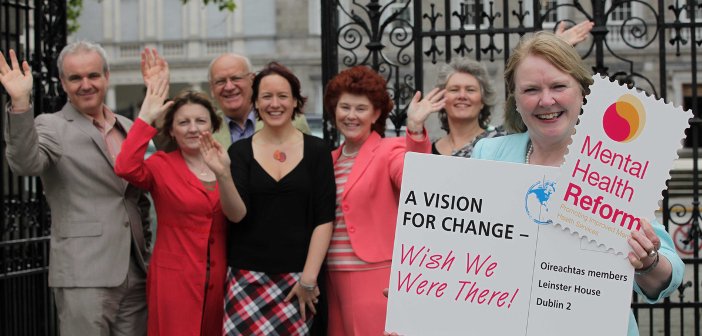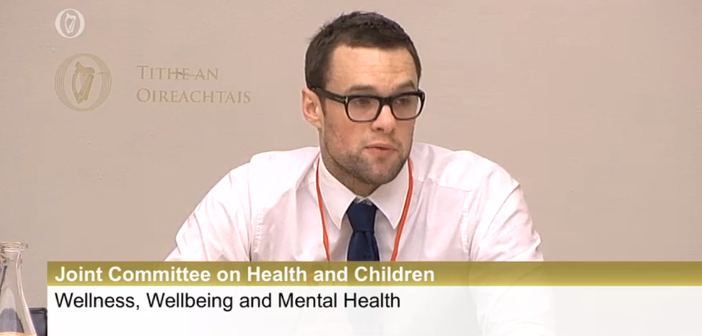Say it Loud, Say it Clear: We Need Mental Health Reform
We need mental health reform. I’m not the first one to say it, and I won’t be the last.
In recent years, headlines have been filled with reports on the hospital crisis, depicting seriously ill ninety-three year old women left on hospital trolleys for hours on end. Indeed, last year I visited my own mum when she got admitted to A&E and was horrified to walk down hallways filled with people on a Tuesday evening. If we’re seeing physically ill people left to sit on trolleys for days, one only has to wonder what happens to those with invisible illnesses. What happens to the mentally ill?

I read an article this time last year, detailing the story of a suicidal girl with autism who attended an A&E in Cork, asserting her desire to attempt suicide. After a seven hour wait, she was told that there were no beds available in the psychiatric unit. At the time, the story sparked major controversy and concern about the state of our mental healthcare system. And at the time, nothing was done to rectify it.
More recently, the death of Caoilte O Broin brought further scrutiny upon Ireland’s mental health system. Caoilte’s family had expressed their fears for his life, and yet the apparent failings of the system allowed him to discharge himself from psychiatric services days before his body was found. This story has been portrayed as a tragedy – and it is. It is truly horribly heartbreaking, and my deepest condolences rest with Caoilte’s friends and family. But this story has also been portrayed as an isolated occurrence. And it is not.

The failings of the mental health system have seen countless suicides; particularly among young men where it is, in fact, the leading cause of death in Ireland. St. Patrick’s Mental Health Services have stated that
A large percentage will have already attempted suicide and been in contact with health services. Between 45% and 65% will be suffering from treatable mental illnesses such as depression or psychosis.
Let’s think about that. It’s not as if we simply have a higher percentage of mentally ill people compared to other countries. It is the fact that our mental health system is so underfunded, and so overstretched, that people are waiting extended periods of time to obtain the help they deserve.[pullquote]The failings of the mental health system have seen countless suicides; particularly among young men where it is, in fact, the leading cause of death in Ireland.[/pullquote]
Indeed, I personally encountered a struggle with the HSE mental health services when trying to get the help I needed last year. My local mental health clinic had no psychologists present for the entirety of the summer. Of the two the services held, one had gone on maternity leave, and the other had left. No replacements had been confirmed until November. Five entire months that that incredibly vital facet of the services was absent.
In a fit of desperation, I had called the clinic to ask for a referral to a psychiatric hospital (due to suicidal ideation) and was informed that my psychiatrist was away, but if I could just wait one week I could ask her for a referral myself. If I couldn’t wait, I was to go to A&E – a place where I knew I would sit patiently for a number of excruciating hours, only to be turned away, just like the girl from Cork.

Being told to wait. The message to everyone who contacts their services – notwithstanding the bravery needed to actually ask for help in the first place – is issued loud and clear. This is the part that gets me. If a person visits A&E, there is obviously a hierarchy determining who gets seen to first in terms of severity. If a person comes in bleeding profusely from the face, they will be rushed in to be seen far quicker than a person with a suspected broken arm. The bleeding is far more life-threatening, right? The same cannot be said when a person actually states that they themselves are a threat to their own life. Why should they have to wait?[pullquote]The same cannot be said when a person actually states that they themselves are a threat to their own life. Why should they have to wait?[/pullquote]
Why should an entire system dedicated to mental healthcare hinge on whether or not a person has threatened to, or actually, harmed themselves? In the case of Caoilte O Broin, the threat alone was horribly, shamefully, not enough. In this sense, one can almost understand why a person might make an attempt on their life. Not just from the hopelessness, or the lack of support; but knowing that presenting as an emergency case will, sadly, get you seen much faster than just explaining what is wrong.
St. Patrick’s Mental Health Services have stressed that early intervention is key, but with the public services so far stretched, it is a wonder that anyone obtains the early intervention they need. At a joint Oireachtas committee meeting this week, Niall ‘Bressie’ Breslin (founder of A Lust for Life and mental health advocate) spoke fervently about mental health reform. Having suffered from Generalised Anxiety Disorder for years, he declared that the current state of our mental health services has led to the “epidemic of a generation.”

He also demanded an entire mental health system overhaul, and pleaded for those in positions able to effect change to do so as though it were their child or their family member who was in need of help. Indeed, the impassioned individuals behind mentalhealthreform.ie are actively lobbying politicians running in the upcoming General Election by asking the public to remind every single candidate to make mental health a priority.[pullquote]The current state of our mental health services had led to the ‘epidemic of a generation.’[/pullquote]
However, we can’t just ask for change. We need to offer solutions. We need to offer ways to make these changes possible. Perhaps a triage system in mental health clinics, where newly qualified student psychiatrists or clinical psychologists can do an initial assessment before patients are seen by the consultants on duty. We could offer newly qualified students a fair fixed daily rate (no JobsBridge schemes – a real wage) or accreditation hours.
The waiting lists will shrink faster and faster as soon as those waiting to be seen are assessed for urgency of treatment. Dedicated public mental health hospitals could have their own Emergency Departments where mentally ill individuals could present for emergency assessment – immediately lifting some of the strain from existing hospitals.
The opportunities and possibilities for reform are non-exhaustive. Mentalhealthreform.ie have offered 5 recommendations the public can make to election candidates regarding the vast improvements we so desperately need. When they come knocking on your door, say it loud and say it clear: we need mental health reform.
Featured image via mentalhealthreform.ie
